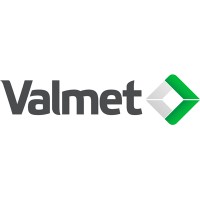-
Top 10 advantages of industrial electric process heating equipment over gas-fired heating equipment
Industrial electric process heating equipment offers significant advantages over traditional gas-fired process heating equipment. These advantages are revolutionizing the way industries approach their heating requirements and driving the adoption of electric solutions. Here are the key benefits of industrial electric process heating equipment:
-
Carbon Capture and Storage (CCS) technologies aim to capture carbon dioxide (CO2) emissions from power plants and heavy industry before transporting it by pipeline or ship and storing it underground in, for example, empty oil and gas fields. The driver behind this method is to reduce the mass of CO2 that enters the atmosphere and contributes to global warming and ocean acidification. The technology can be used in energy production facilities, and other industrial processes, wherever ...
-
State of the Art: CCS Technologies 2022
With the emergence of Carbon Capture and Storage as an essential tool to limit climate change impact and reduce emissions from energy intensive industries, interest in CCS has been growing at an unprecedented rate in recent years. As a result of the key role played by CCS in the energy transition towards a net-zero future, the economic performance of CCS is becoming increasingly important and technology development fundamental to meet the demand for improved CO2 capture systems, ...
-
Industrial Heat Tracing Solutions
Advanced Industrial Solutions. As the world’s largest provider of complete electrical heat management systems, primarily for the general process, oil and gas, chemical, and power generation industries, nVent provides innovative nVent RAYCHEM products and nVent TRACER turnkey solutions. nVent RAYCHEM heat trace systems offer superior reliability with the highest lifetime value at lower installed cost and lower cost of ownership. Our premiere turnkey solutions include full life ...
-
Valmet Valve Automation Excellence
Valmet offers a unique and complete range of solutions for your valve automation needs. With our actuator and controller products you can fulfill end user requirements for control, emergency shutdown and on/off valve applications. Our valve automation solutions will ensure the best possible valve performance and compliance to environmental regulations, regardless of valve make, model or manufacturer. Our offering ranges from limit switches to reliable actuators and intelligent ...
-
TRI-CON Series H2 Applications
The number of unique technical attributes of the product, as the cone-in-cone seating design with the multiple laminations and the metal seat makes the series TRI-CON to an all rounder for many different industrial applications. Zwick valves are used for industrial and exhaust gases, liquids, hot water or steam at lowest as well at high temperature zones up to 815°C. The TRI-CON is utilized extensively in the chemical, petro-chemical, oil & gas, offshore and district heating ...
-
The shift to clean energy solutions
As the natural gas industry assembled in September for the 56th Annual American School of Gas Measurement Technology, it has become clear that the oil and gas industry has embraced the energy transition. While many of the classes covered traditional topics in natural gas, including gas quality measurements such as moisture or hydrogen sulfide, the discussion among participants ranged from the role of natural gas to the increasing use of biofuels to how hydrogen blending impacts ...
-
Heat Management System for Carbon Capture and Storage Industry
The Carbon Capture and Storage (CCS) industry is playing a critical role in reducing CO2 emissions into the atmosphere. This adds more demand on industrial processes. Keeping operations running efficiently is crucial. nVent Thermal Management provides a heat management system engineered to protect critical process temperatures and prevent utilities and instrumentation equipment from freezing.
-
PURASPEC CLEAR Chloride guards
Chlorides in a refinery. Where does it come from? Chlorides are introduced into the refinery flowsheet in several ways. Some crude sources can bring both inorganic and organic chloride content. Desalter processes and chemical additives are used to remove chlorides and prevent corrosion and fouling caused by these chlorides. The other major source is from the Catalytic Reforming Unit (CRU). This unit upgrades straight run naphtha value for use in the gasoline pool or as petrochemical ...
-
Delivering world class hydrogen plant performance
The world that we live in today is constantly changing; 50 years from now it will be unrecognisable. We live during a period of significant population growth, with increasing urbanisation and increasing wealth. The population is not only increasing, it is also getting older, and it demands better health and nutrition. There are increasing constraints on our natural resources, with energy security, resource efficiency, alternative energy and recycling becoming global issues. And ...
-
Methane is responsible for around 30% of the rise in global temperatures since the Industrial Revolution, and rapid and sustained reductions in methane emissions are key to limiting near-term global warming and improving air quality. The energy sector – including oil, natural gas, coal and bioenergy – accounts for nearly 40% of methane emissions from human activity. The IEA’s Global Methane Tracker is an indispensable tool in the fight to bring down emissions from across ...
-
Jet Zero Strategy: Delivering net zero aviation by 2050
The early evolution of air travel in this country — from the first commercial flight to the first jet airliner, the British Comet — took just 30 years. In that short time, aviation technology developed at an astonishing pace. But it showed what we can achieve. We now have even less time to transform aviation again. Our target of net zero flying by 2050 is hugely challenging. Not just because aircraft have always relied on fossil fuels, but because aviation is only just ...
-
Flow control solutions for green and blue hydrogen
Valmet is your valve partner for greener hydrogen processes. Our long experience and comprehensive portfolio cover the majority of applications in the industrial use of hydrogen. Many of the world’s leading industrial gas companies already rely on our valves for reliable performance. Also, many downstream end users turn to us when selecting valves for demanding H2 applications.
-
Decarbonising process heat with industrial heat pumps and steam compressors webinar
Industrial energy consumption accounts for about 25% of energy demand and CO2 emissions worldwide, with process heat being the most common application. Hydrocarbon and basic chemical processing plants are particularly process heat-intensive. Heat demand for basic operations distillation and heating of fluids in US industry is about as energy intense as all other industrial heat applications combined. At the same time, there is a vast, unused potential for waste heat in many plant ...
-
Proven decarbonisation pathway for sustainable biofuels and chemicals production from waste webinar
The flexibility to make use of varying waste streams as feedstocks to replace primary fossil resources is a common goal in operations today. You may be looking at sources such as woody and agricultural biomass, MSW, RDF, SRF, sewage sludge, or non-recyclable plastic to produce bio or circular chemicals or sustainable fuels: Bio Syngas, green hydrogen, SAF, sustainable maritime fuels, or BioMethanol. The key question is how to decarbonize these assets to meet sustainability and ...
-
Innovative H₂ Solutions to shape the hydrogen economy
View this webinar for an insightful journey into the future of sustainable energy with Honeywell H₂ Solutions. In this exclusive webinar, we'll delve into cutting-edge innovations in hydrogen technology, focusing on Blue Hydrogen solutions and Liquid Organic Hydrogen Carriers (LOHC). Attending will offer these valuable benefits: - Discover how Honeywell is leading the way in transforming the energy industry through Blue Hydrogen, a game-changing process that reduces carbon ...
-
Overcoming roadblocks to decarbonisation webinar
Reducing global CO2 emissions and limiting the increase in global average temperature to 1.5°C is probably the greatest challenge humanity has ever faced. The continuous increase in strength and frequency of natural disasters accompanied with record-high temperatures have drastically accelerated the need to take action to reduce our carbon impact. There is a global consensus between governments, companies, and the public that there is a need to decarbonise our societies and, ...
-
A hidden threat to refining and petrochemical operations
Did you know that a seemingly insignificant amount of biofilm can negatively affect heat exchanger reliability and efficiency and, as a result, significantly limit production? Attend this webinar from Solenis to gain valuable insights into risks and solution methodologies for biofilm issues. • Learn how biofilm can affect your profitability and production efficiency • Explore novel technologies from Solenis that mitigate the risks posed by biofilm • Hear about a leading ...
-
Mission critical electric heat tracing solutions to support the energy transition webinar
Around the globe, clean fuels are helping reduce carbon emissions. And world leaders have pledged to invest in technologies such as carbon capture and hydrogen to help accelerate the clean energy transition. Biofuels, hydrogen, liquefied natural gas and carbon capture technologies are driving the transition to clean fuels and CO2 reduction. This webinar gives you the opportunity to learn how nVent RAYCHEM solutions for the energy transition markets can enable and optimize your ...
-
New digital tools to improve operational profitability in refineries Webinar
View this webinar to learn how you can leverage new digital tools as part of the Honeywell UOP upgraded PremierPLUS Performance Services offering to avoid unplanned downtime, optimize process performance, manage personnel changes, and reduce energy and emissions. The PremierPLUS Performance Services offering addresses these challenges and can improve operational profitability by an average of $1M to $5M per year. Attending this webinar will give you an overview of Honeywell ...
-
Maximizing renewable diesel and sustainable aviation fuel yields
Investments in renewable diesel (RD) and sustainable aviation fuel (SAF) production are gaining considerable momentum and are expected to play a vital role in reducing carbon emissions for heavy-duty transportation. Currently, the majority of these projects focus on the production of HEFA (Hydroprocessed Esters and Fatty Acids). Chevron Lummus Global combines the renewable processing catalyst experience and technology of ART's ENDEAVOR™ catalyst system, CLG's hydroprocessing ...
-
Enabling energy transitions with the Callidus ultra blue Petrochemical burners
Join this webinar to learn how your renewable energy and net zero operations can dramatically lower nitric oxide (NOx) emissions with the Honeywell Callidus Ultra-Blue Burner system. Fuels are changing in order to meet corporate commitments to carbon reduction and net zero goals. As your operations use more hydrogen and renewable fuels, production of nitric oxide is increasingly scrutinized in both external regulations and internal emissions targets. Attending this webinar ...
-
The Sustainable Solution for HydroProcessing Catalysts
Unveil the path to sustainable catalyst processes with Excel® Rejuvenation Technology! Join us as we delve into the art of catalyst rejuvenation, uncovering the means to propel your processes towards enhanced sustainability and waste reduction. Learn how to steer your operations away from wasteful practices and embrace sustainability using Evonik's Excel® Hydroprocessing Catalysts solutions. Our certified Life Cycle Assessment (LCA) lays bare the potential emissions you can ...
-
Webinar discussing developments and solutions for renewable fuels testing
Regions and nations around the world are swiftly translating their climate targets into investments in renewable energy and fuel production. This necessitates a multifaceted approach and innovative solutions. Join us for this webinar as we report on the latest developments in the renewable fuels industry, with a particular focus on the transportation sector. We will discuss a range of renewable fuels, including SAF, ethanol, biodiesel, hydrogen, and their derivatives, while exploring ...
-
Low cost production of renewable diesel and sustainable aviation fuel
Feed flexibility is critical for operators to stay competitive and deliver high-quality products. But diversifying your feed can bring its own set of challenges. It gets even trickier when working with renewable feedstocks from biological sources. These materials are highly olefinic and might be packed with heteroatom contaminants. To turn them into something valuable, you need substantially more hydrogen than you would for conventional petroleum hydrotreating. We're talking 1,700 ...
-
Navigating Complexities of Renewables Processing: Feedstocks, Legislations, Challenges & Solutions
Refineries are shifting away from producing traditional fuels to remain relevant, compliant and profitable. Join us to learn more about recent developments in renewable feedstocks processing. In this webinar from Ketjen, you will gain an understanding of the regulations and drivers that shape the renewables market. You will also have a chance to learn about operational challenges you may face while processing feedstocks with various amounts and grades of HVO or waste plastic ...
-
Decarbonisation with Honeywell Sustainability Portfolio and the Inflation Reduction Act
The Inflation Reduction Act (IRA), passed by the US government on August 16, 2022, provides nearly $370B in clean energy and climate funding over the next decade There has never been a better time to invest in a more sustainable future. Our upcoming webinar will provide valuable insights into key IRA provisions and enabling technologies to accelerate industrial decarbonisation and achieve your long-term financial and sustainability goals. This webinar will offer an incredible ...
-
Applying Crude to Chemicals: Technologies for effective petrochemicals production
With the consumption of petrochemicals increasing globally and the demand for transportation fuels under pressure from energy transition initiatives, refiners are being driven to optimize their facilities and explore revenue streams outside of the traditional transportation fuel value chains. There are several alternatives and methodologies to capture additional value from crude oil through conversion into petrochemicals to consider. This webcast covers: - How to convert a ...
-
Decarbonization with hydrogen solutions
Demand for hydrogen is expected to increase up to ten-fold by 2050 when multiple industry reports predict 8-24% of the world’s final energy demand will be supplied by hydrogen. Hydrogen has a unique ability to address ‘hard-to-decarbonize’ sectors including refining, chemicals, steel, heating, long-haul transport, and long-term power storage — all of which currently produce significant CO2 emissions. To achieve this, hydrogen must be produced with significantly lower carbon ...
-
Enabling circularity via plastics chemical recycling
Chemical recycling of plastics is an emerging route to supplement mechanical recycling since polymers can be converted into monomer form. As opposed to mechanical recycling, wherein the polymer properties degrade with each cycle, the monomers can be re-polymerized without any polymer property degradation. Petrochemical and refining operations of the future will include more plastics oil, obtained from chemical recycling, in the feedstock mix to establish circularity in the ...
-
How turbomachinery can support decarbonization
With the hydrocarbon processing industry’s efforts to decarbonize, hydrogen and Carbon Capture Utilization and Storage (CCUS) have further moved into focus as viable alternatives for transforming existing energy markets. Both hydrogen and CO2 provide ample opportunities to be used in hydrocarbon processes either in molecular form or as feedstock. At the same time, the unique physical properties of both hydrogen and CO2 can make them a challenge for process equipment such as ...


































